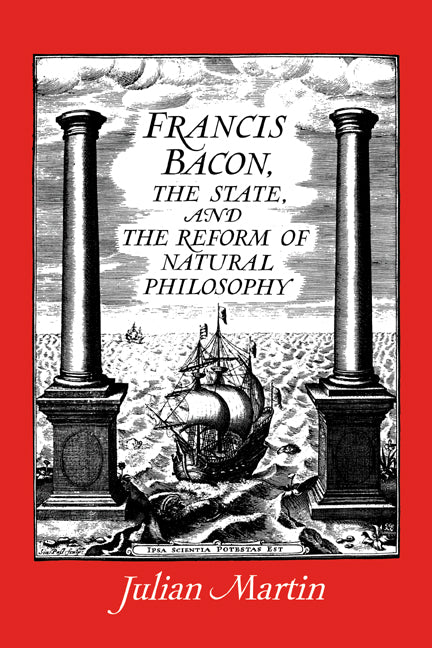Freshly Printed - allow 8 days lead
Couldn't load pickup availability
Francis Bacon, the State and the Reform of Natural Philosophy
An examination of Francis Bacon in Tudor government.
Julian Martin (Author)
9780521035668, Cambridge University Press
Paperback / softback, published 30 April 2007
252 pages
22.9 x 15.2 x 1.4 cm, 0.37 kg
'This is an excellent piece of work - subtle, original, highly innovatory, and distinctly readable. Its main theses are really facinating and very well maintained, and it seems to me that this book will signal a new start for early modern science and philosophy.' G. R. Elton
Why was it that Francis Bacon, trained for high political office, devoted himself to proposing a celebrated and sweeping reform of the natural sciences? Julian Martin's investigative study looks at Bacon's family context, his employment in Queen Elizabeth's security service and his radical critique of the relationship between the Common Law and the monarchy, to find the key to this important question. Deeply conservative and elitist in his political views, Bacon adapted Tudor strategies of State management and bureaucracy, the social anxieties and prejudices of the late Elizabethan governing elite, and a principal intellectual resource of the English governing classes - the Common Law - into a novel vision and method for the sciences. Bacon's axiom that 'Knowledge is Power' takes on far-reaching implications in Martin's challenging argument that the reform of natural philosophy was a central part of an audacious plan to strengthen the powers of the Crown in the State.
Acknowledgements
A note on the text
Introduction
1. A statesman's responsibility
2. The young statesman
3. Business of State
4. Law
5. A reformed state
6. A reformed natural philosophy
Conclusion
Appendix: a table of comparisons
Notes
Bibliography
Index.
Subject Areas: Literary studies: c 1500 to c 1800 [DSBD]


